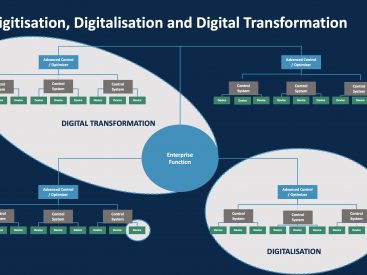One of the lesser-known aspects of digital transformation within manufacturing is supply chain traceability, which could help maximize efficiencies and even reduce carbon emissions Digital technologies, if brought to scale, could reduce carbon emissions by up to 20% by 2050 in manufacturing across the three highest-emitting sectors (energy, materials, and mobility), according to the World Economic Forum . “No matter if you don’t do anything else… improvements in manufacturing’s digital transformation journey drives positive around ESG [environment, social & governance] and sustainability,” says Craig Coulter , sustainability leader for global advanced manufacturing & mobility at EY. One of the sub-components of digital transformation within manufacturing is supply chain traceability. In an increasingly complex global marketplace, traceability has emerged as a critical factor for businesses and their supply chains across industries. Companies are under mounting pressure to ensure transparency and sustainability throughout their supply chains for Scope 3 reporting across ESG issues. Technologies across supply chains have been used to maximize efficiency and to manage inventory for many years. Indeed, barcodes, radio frequency identification, global positioning system (GPS), and artificial intelligence (AI) have been in the mix for decades. However, the demand for supply chains transparency and clean supply chains […]
Click here to view original web page at www.thomsonreuters.com



